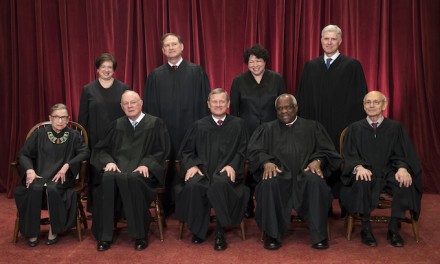Brett Kavanaugh has been sitting on the U.S. Supreme Court for only a month, and the memory of his confirmation hearings cast a strong shadow over the Tuesday congressional elections. You could ask Claire McCaskill in Missouri, Heidi Heitkamp in North Dakota or Joe Donnelly in Indiana. Several Democrats in competitive races who voted against his confirmation lost. Joe Manchin from West Virginia, the only Democrat who voted to confirm him, won.
Sen. Lindsay Graham, a Republican of South Carolina, says one of the reasons Republicans retained control of the Senate was because of the “despicable’ way Democrats treated Brett Kavanaugh.
The outrage was hard to hear over the din of election news, but the Senate Judiciary Committee has challenged the feminist mantra that every woman who goes public with a sexual assault claim should be believed. Judy Munro-Leighton, who threw an accusation of rape against Justice Kavanaugh into the mix, now says it was all a lie (and plagiarized besides), done to derail his nomination and to bring attention for herself.
She didn’t derail his confirmation, but she did get attention, and she’s likely to get more. Sen. Chuck Grassley of Iowa, chairman of the Judiciary Committee, who revealed the fraud in a letter to the FBI and the Justice Department, asks the agencies to prosecute her for telling a lie that obstructed the work of Congress. Senators of both parties usually don’t like being lied to. Neither the FBI and the Justice Department waste resources.
Ms. Munro-Leighton, a left-wing activist, stole the made-up story from an anonymous “Jane Doe” who contributed a lurid tale that Mr. Kavanaugh raped her in the back seat of his car when they were young.
Jane Doe, whoever she may be, and Ms. Munro-Leighton now join that innumerable caravan in the case studies of false accusers, who try take advantage of men made especially vulnerable when they’re in the spotlight in a culture that believes, or says it does, that such lurid allegations are rarely false. Who needs evidence when you’ve got the accusation?
Data is scant on how many such accusations are false because only the sensationalized stories come to public attention. But the damage they do is incontrovertible and often severe. That’s why the presumption of innocence, the jewel of Western jurisprudence, is such a sacred legal value.
Much of the public seemed ready to trade that jewel for the destruction of Justice Kavanaugh, and this latest confession is a reminder that no matter what actually happens (or doesn’t happen) between a man and a woman, an accusation of sexual assault requires evidence. Fuzzy cliches offered in support of an accusation, like it has the “ring of truth” or “where there’s smoke there’s fire,” are particularly suspect. Such accusations are often invented to get a payoff, not to right a wrong.
False accusations have ruined the reputations of young men on the campus. Years can be required to clear their names, if they ever are. The notorious “mattress girl” made the cover of Time magazine by carrying a 50-pound mattress around her campus to symbolize her suffering as the victim of rape by a fellow student. That accusation turned out to be a lie, too.
False accusations that come before a Senate committee, such as Ms. Munro-Leighton’s vicious tall tale, are not only exceedingly painful for the accused and his family, but costly for the taxpayer, take up valuable time in time-sensitive investigations, and dilute the impact of the real thing. Justice Kavanaugh’s accuser deserves to be prosecuted not only for harm done but to discourage others tempted to seek perverted stardom by taking advantage of polarized politics.
Sen. Charles Grassley of Iowa, chairman of the Judiciary Committee, this week released hundreds of pages of the committee’s interviews and statements over the sexual allegations against Justice Kavenaugh. The committee concluded there was “no evidence to substantiate any of the claims [of sexual misconduct].”
No witnesses were found to corroborate the accusations of Christine Blasey Ford that when she was 15 years old, Brett Kavanaugh, then 17, sexually assaulted her at a party. Two men interviewed by the committee thought she might be confusing young Kavanaugh with themselves in a tryst they said was consensual.
The committee’s findings illustrate how complicated it is to sift truth from falsehood embedded in memories decades old, which become ambiguous motivations to be tried only in a court of inflamed public opinion. Justice Kavanaugh rightly described certain accusations as coming from “the twilight zone.” But they made headlines and the Grassley report repudiating them did not.
Before the Democrats won the House, Rep. Jerrold Nadler, the New York Democrat who expects to become chairman of the House Judiciary Committee, said he would seek Justice Kavanaugh’s impeachment. That would be a spectacularly dumb political idea. Will he have an appetite for dumb ideas like that now? Dumb ideas die hard.
• Suzanne Fields is a columnist for The Washington Times and is nationally syndicated.
© Copyright (c) 2018 News World Communications, Inc.
—-
This content is published through a licensing agreement with Acquire Media using its NewsEdge technology.




















Recent Comments